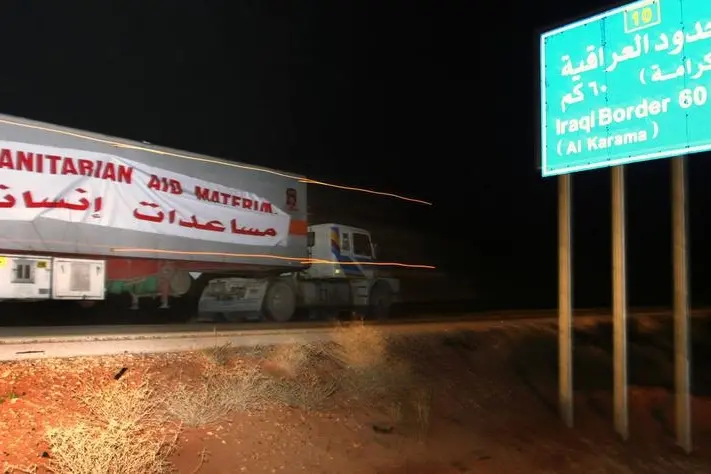PHOTO
Saturday, Sep 02, 2017
Trade between Jordan and Iraq received a major fillip on Wednesday following the reopening of their main border crossing after a two-year closure. Called Karama in Jordan and Tureibil in Iraq, the post sits on a 900km route linking Amman and Baghdad. The passage on the 180km border was closed soon after Iraqi troops withdrew in 2014 when Daesh (the self-proclaimed Islamic State of Iraq and the Levant) terrorists seized control of the crossings in the western frontier. By then, Daesh had swept through a third of Iraq.
The restoration of cross-border traffic comes close on the heels of Iraqi victories in Mosul and Tal Afar. Anbar is celebrating in the hope that revival of trade will also bring stability back to the border province that has witnessed heavy fighting to drive out Daesh.
Jordan too will be celebrating. The civil wars in Iraq and Syria have hurt the kingdom’s economy. Exports plummeted, power was in perennial shortage, and factories remained shut. Iraq was Jordan’s main export market, accounting for almost a fifth of domestic exports or about $1.2 billion (Dh4.41 billion) a year, according to the International Monetary Fund. When the route was closed in 2015, trade dropped by more than two-thirds. Iraq also catered to Jordan’s energy needs, shipping 10,000 to 12,000 barrels a day of oil by road, which is about a 20th of the kingdom’s daily requirements. Of course, it came at preferential rates.
So the Tureibil route is a lifeline for Jordan. The resumption of trade will indeed spur economic growth in the kingdom. It will also breathe new life into its starving energy sector. The wheels of the economy in Jordan and Iraq will be whirring faster soon.
Gulf News
Gulf News 2017. All rights reserved.





















